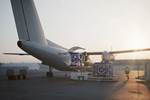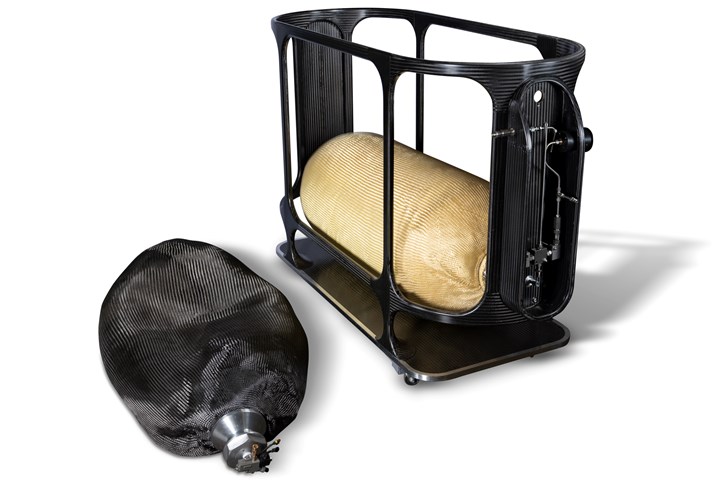$62 million financing round accelerates Universal Hydrogen's first test flight to 2022
Total raised capital reaches $85 million to conduct the first test flight of Universal Hydrogen’s hydrogen fuel cell powertrain with composite storage tanks on a 40+ passenger regional airliner in 2022.
Universal Hydrogen (Los Angeles, Calif., U.S.), a company focusing on hydrogen-powered aviation, has announced a funding round yielding $62 million in new capital. New investors in the round include Mitsubishi HC Capital, Tencent, Stratos, GE Aviation, Waltzing Matilda Aviation, Fourth Realm, Hawktail, Marc Benioff’s TIME Ventures, Jeff Wilke and Spencer Rascoff’s 75 and Sunny Ventures. The company’s prior financing round in April 2021 included Playground Global, Fortescue Future Industries, Coatue, Global Founders Capital, Plug Power, Airbus Ventures, JetBlue Technology Ventures, Toyota Ventures, Sojitz, Future Shape and Trucks, most of which also participated in the current round. This brings Universal Hydrogen’s total capital raised to date to $85 million.
Universal Hydrogen says this funding will enable it to conduct the first test flight of its hydrogen fuel cell powertrain on a 40+ passenger regional airliner in 2022 at Moses Lake, Wash., U.S. The green hydrogen for the flight will be supplied using Universal Hydrogen’s fiber-reinforced composite modular fuel capsules (see “Universal Hydrogen uses dry braided carbon preform tanks as part of plan to decarbonize aviation”) that enable the delivery of hydrogen from the point of production directly to the aircraft using the existing freight network and airport cargo handling equipment — without the need for any new infrastructure. The proprietary modular capsule technology is significantly lighter than the current state of the art in hydrogen storage and is designed from first principles for flight and ground transport safety certification.
The company anticipates entry into commercial service in 2025 with a certified retrofit conversion kit for existing ATR 72 and De Havilland Canada Dash-8 regional airliners and a green hydrogen fuel services offering. Together, these will provide regional operators with unit economics that are reported to be equivalent or better than those of conventional jet fuel-powered variants of the aircraft. Universal Hydrogen has also secured a substantial commercial order pipeline, including previously-announced LOIs from Icelandair, Air Nostrum, Ravn Alaska, and ASL Aviation Holdings.
“While regional aviation represents a sizable market opportunity and an important early proof point in the fight against climate change, it is a small fraction of total aviation emissions,” says Paul Eremenko, co-founder and CEO of Universal Hydrogen. “If we want to decarbonize the industry on the timeframe of the Paris Agreement, the world’s narrowbody airliner fleet has to become hydrogen-powered starting in the 2030s. There is no known alternative technology to get there.” To that end, the company is committed to collaborating with all key stakeholders, including airlines, lessors, airplane- and engine-makers to ensure that the next generation of narrowbody aircraft (succeeding the 737 and A320 families) are true zero-emissions vehicles.
Headquartered in Los Angeles, California, with an engineering center in Toulouse, France, and a flight test center in Moses Lake, Wash., U.S., Universal Hydrogen says it is rapidly growing its team in pursuit of its ambitious, world-changing goal.
Related Content
-
NCC reaches milestone in composite cryogenic hydrogen program
The National Composites Centre is testing composite cryogenic storage tank demonstrators with increasing complexity, to support U.K. transition to the hydrogen economy.
-
Toray announces growth, investment in carbon fiber composite materials
As part of its 2023-2025 management strategy, Toray projects 42% growth for pressure vessels, 30% growth in carbon fiber composite materials revenue and a doubling of capital investment.
-
Polar Technology develops innovative solutions for hydrogen storage
Conformable “Hydrogen in a Box” prototype for compressed gas storage has been tested to 350 and 700 bar, liquid hydrogen storage is being evaluated.
















